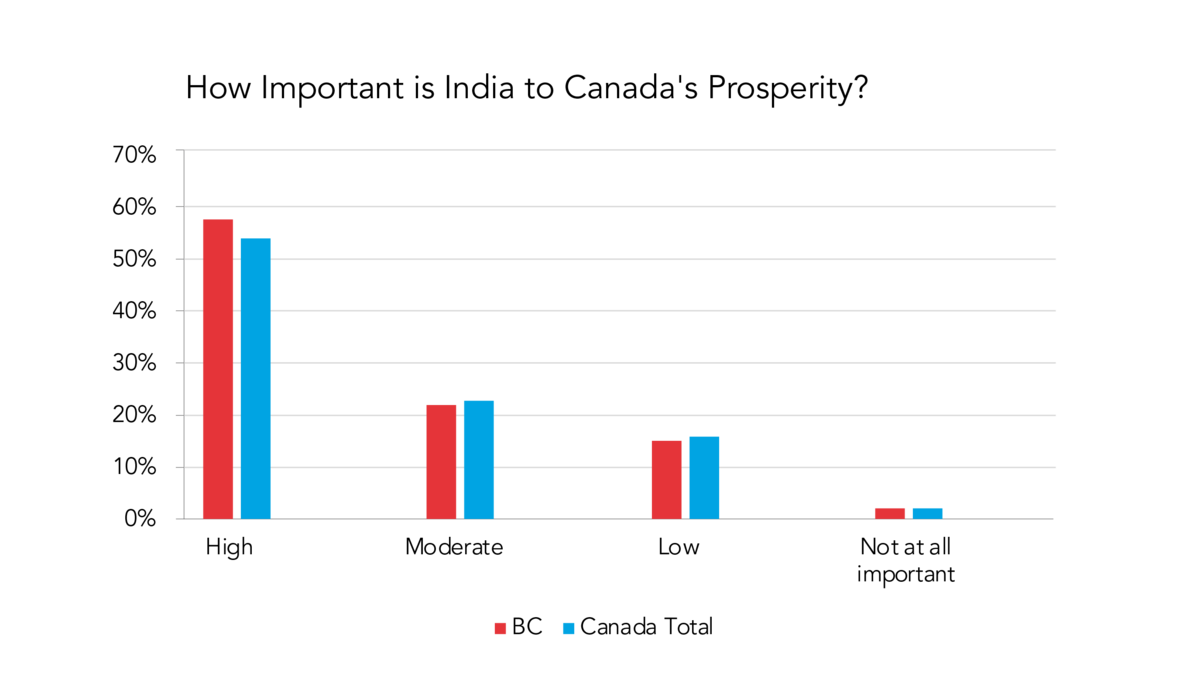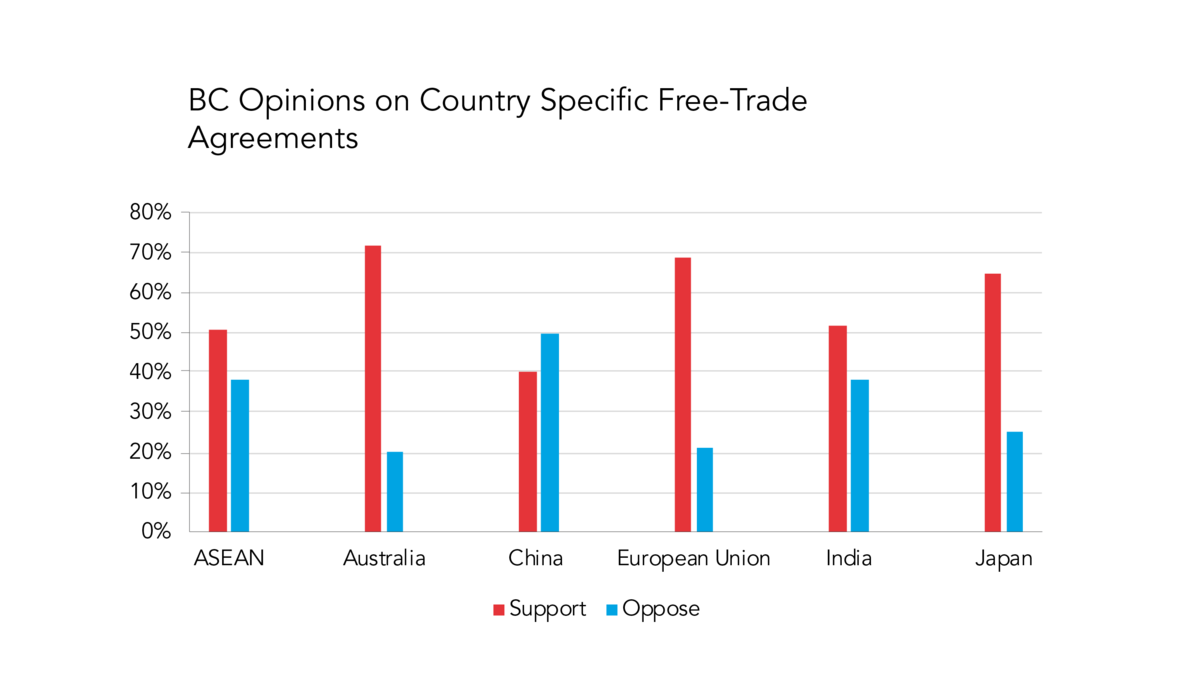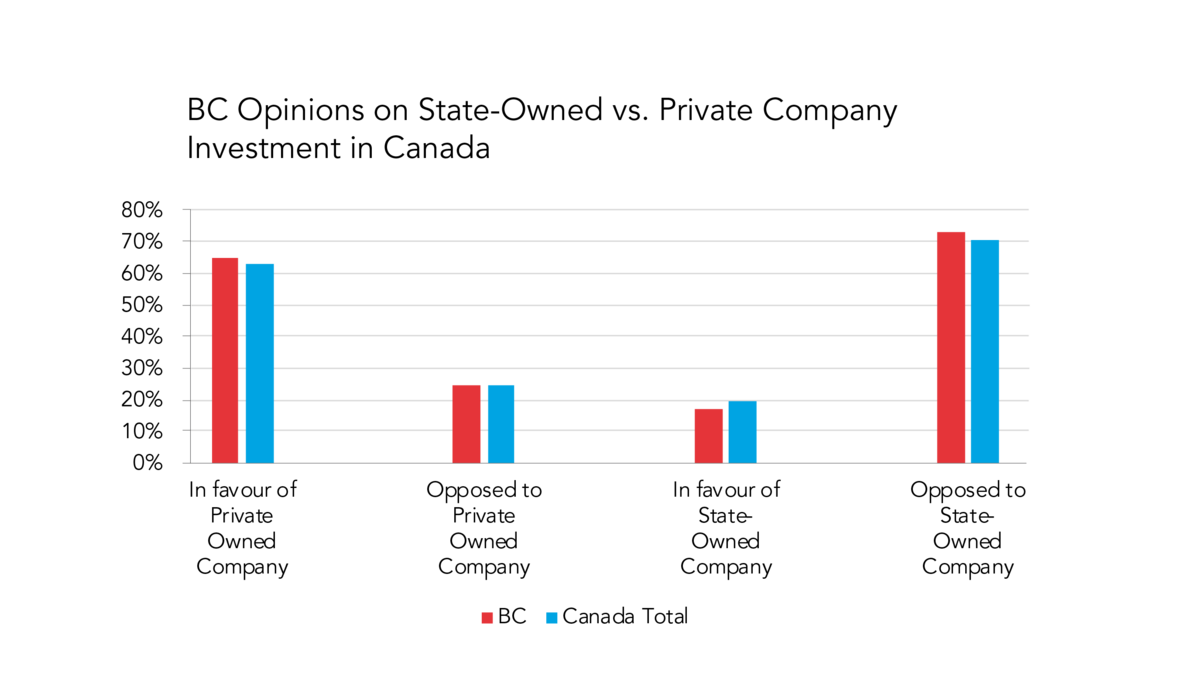With the BC-India Partnership Summit taking place in Vancouver this week, British Columbia and Indian government officials and private sector leaders will focus on how to leverage B.C.’s infrastructure and clean technology expertise to support India’s Smart Cities Initiative, the Government of India’s urban renewal strategy to develop 100 cities across the country to make them citizen friendly and sustainable.
Strategically placed as Canada’s Asia Pacific Gateway and featuring a large and dynamic Indian diaspora community, B.C. in particular has strong ties to South Asia. There is a solid, well-established foundation for B.C.-India trade and investment; however, there is room and desire to further develop that relationship. British Columbians recognize the importance of India to their province’s growth and prosperity but, contrary to their own government’s position, British Columbians still have hesitancies towards certain aspects of increased trade with the country. Using the Asia Pacific Foundation of Canada’s 2016 National Opinion Poll (2016 NOP) data, we can see how British Columbians view their economic relationship with India and where they see that relationship headed in the future.
BC Recognizes India’s Growing Economic Importance
India has promising future economic prospects. With its GDP growing steadily since 2012, the World Bank is predicting India has the potential to become the world’s third-largest economy within 10 years. India also has a growing middle class, currently 50 million, which is expected to reach 200 million in five years, and 475 million within 15 years, surpassing the size of China’s middle class within just 12 years.

British Columbians are ahead of the rest of Canada in recognizing potential in India’s growth. Survey data shows that 69 per cent of British Columbians agree that the growing importance of India as an economic power is more of an opportunity than a threat. Along with that, 80 per cent of British Columbians agree that India is important to Canada’s prosperity. This may be influenced by British Columbians’ positive feelings to India, as B.C. showed more warm, or favourable, feelings towards India than the overall Canadian average.
BC’s Balancing Act on Free Trade with India
In 2015, B.C. exports to India totalled C$623M and imports from India totalled C$511M. The main commodities B.C. exported were ores and ash; mineral fuels, oils and bituminous substances; and, various wood products, including pulp and paper. B.C.’s top imports from India were nuclear reactors, boilers, machinery and mechanical appliances; fish, crustaceans, and molluscs; and, woven clothing and apparel.
While the strength of the B.C.-India relationship is strong, it is especially clear when looking at opinions of free trade that B.C. has a gap to close in order to catch up with the rest of Canada. British Columbians are three per cent less likely than the rest of Canadians to support the Canadian Government entering a free trade agreement with India. They are more likely to support free trade with India than China or the Association of Southeast Asian Nations (ASEAN), but less likely than with Australia or Japan. On the whole, British Columbians are less likely to embrace free trade agreements with other countries than any of their Canadian counterparts. The Government of BC may need to address this issue in the near future, as current negotiations are taking place for a Comprehensive Economic Partnership Agreement (CEPA) between Canada and India.

Private Investment from India is the Key to BC’s Heart
Canada’s foreign direct investment (FDI) into India totalled C$934M in 2015, and India’s FDI into Canada reached C$3.1B. British Columbians are generally receptive to foreign investment from India, but only if it is from a privately owned company. While 65 per cent of British Columbians support private investment, 73 per cent oppose state-owned foreign investment. State-owned foreign investment is, however, quite rare by India in Canada. There was, for example, only one such investment in 2014, with the state-owned Indian Oil Corp. Ltd. acquiring a 10 per cent interest in Calgary-based Progress Energy's LNG-destined natural gas reserves in northeast British Columbia, and in the proposed Pacific NorthWest LNG export facility on B.C.'s West Coast.

In Conclusion
While there is clear opportunity and desire to strengthen economic relations between British Columbia and India, British Columbians’ opinions on India are still mixed. Through events such as the BC-India Partnership Summit, this relationship can continue to develop. But the provincial government may need to capitalize on British Columbian’s positive feelings towards India and better demonstrate how greater trade and investment linkages can allow British Columbians to access future economic opportunities with this increasingly vital trading partner.


